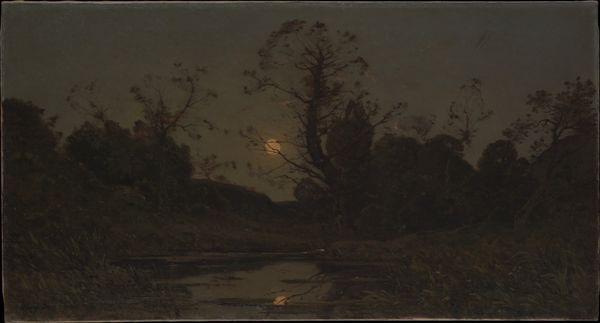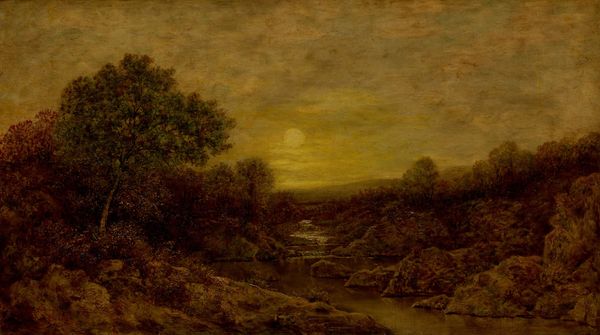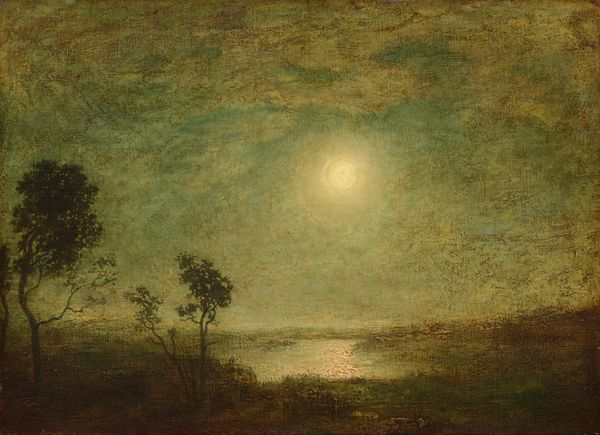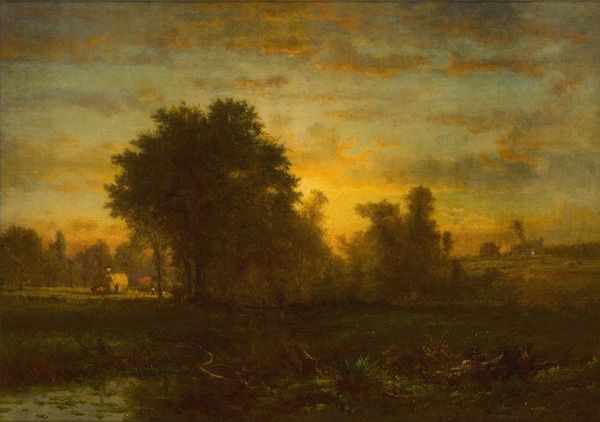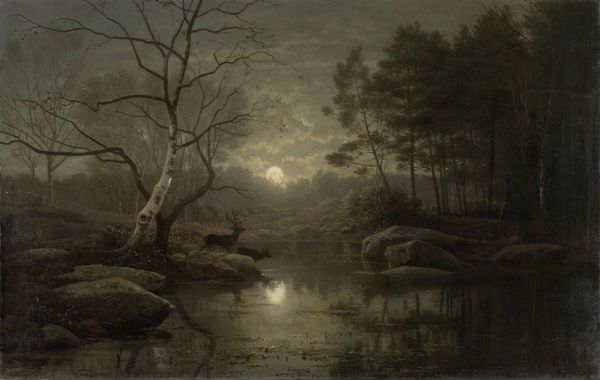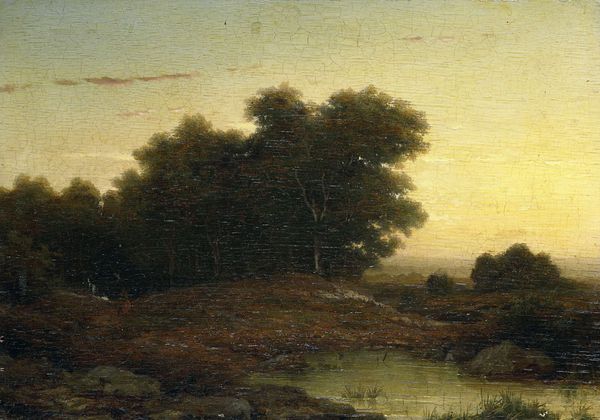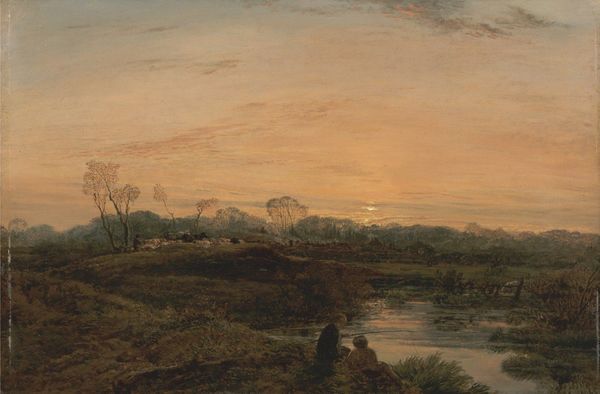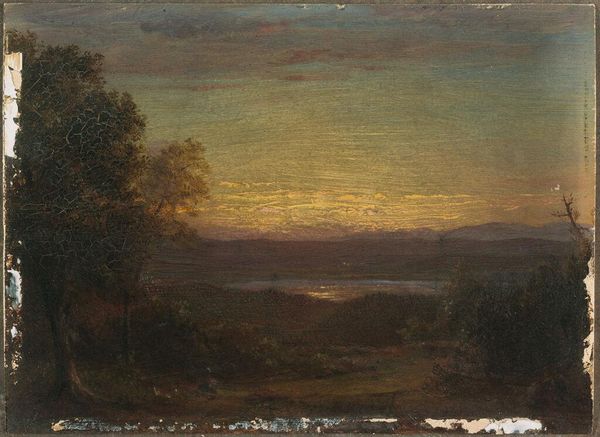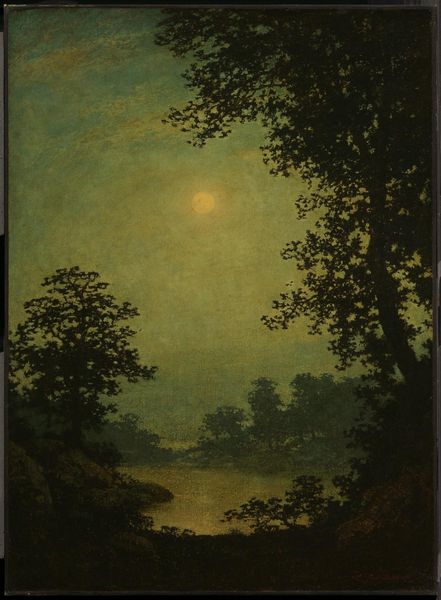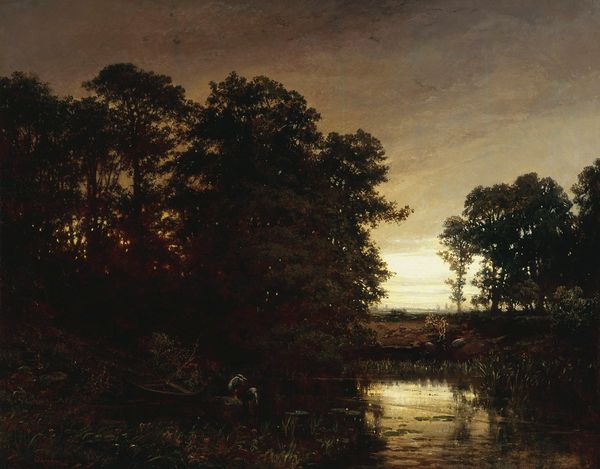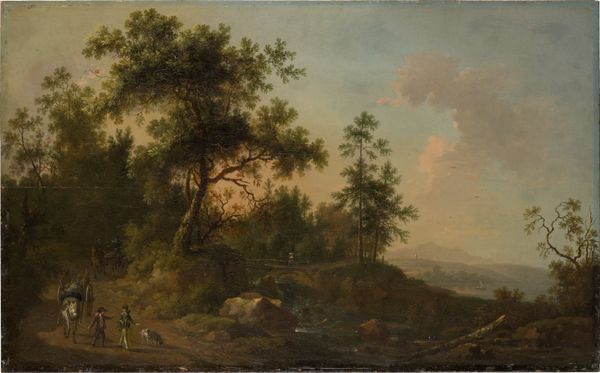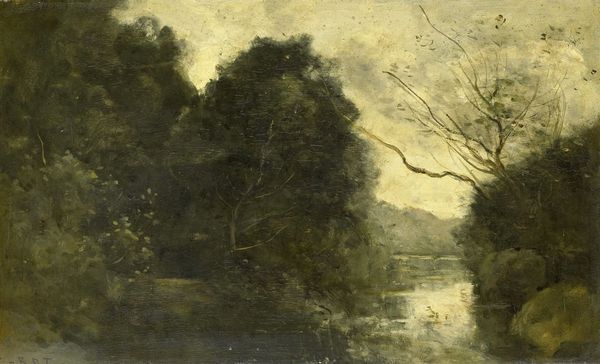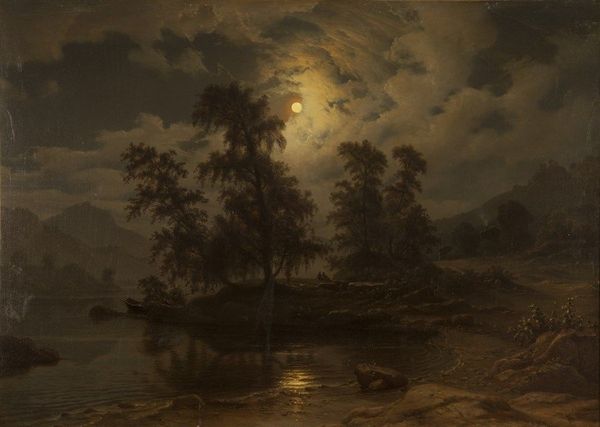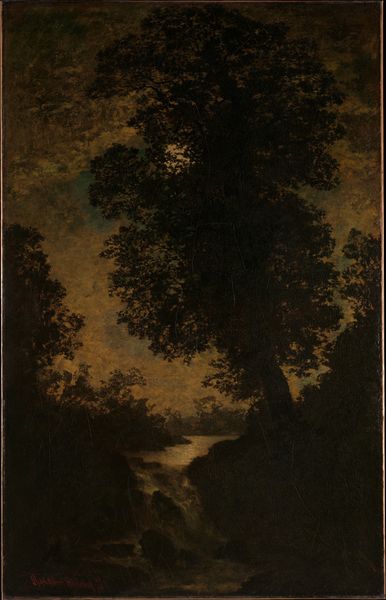
Dimensions: support: 1689 x 3045 mm
Copyright: CC-BY-NC-ND 4.0 DEED, Photo: Tate
Curator: Standing before us is Cecil Lawson's "The August Moon", a painting held here at the Tate. It's a large canvas, almost two by three meters, dominated by nocturnal tones. Editor: It feels deeply melancholic, doesn't it? Like a scene from a forgotten dream. The low horizon line and muted colors create this overwhelming sense of quiet desperation. Curator: Lawson was deeply interested in the rural working class, and there's a subtle social commentary here, suggesting the isolation they faced. The moon, almost indifferent to their plight, is cold and distant. Editor: That's interesting. I see the moon more as a beacon of hope in this oppressive darkness, a symbol of resistance. But the sheer size of the landscape also dwarfs any human presence. It raises questions about environmental determinism. Curator: Perhaps we're both right. Lawson's romanticism is never simple. It's tinted with realism, a complex and evocative depiction of his time. Editor: Absolutely. It encourages us to reflect on the interplay between power, landscape, and the individual within it. Curator: Lawson's short life, cut short at only 32, makes this painting all the more poignant. Editor: It's a haunting reminder of the lives lived and the stories untold. A profound commentary on the human condition, even now.
